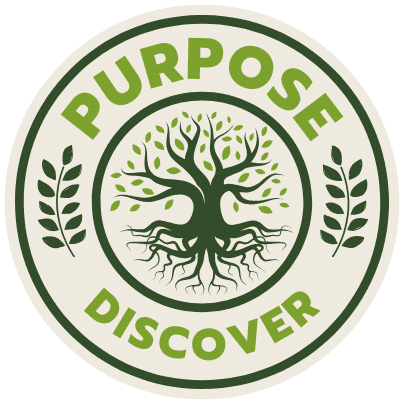You ever notice how the people who seem the most lost in life aren’t necessarily the ones who lack goals, but the ones who can’t name what they’re actually feeling? Purpose isn’t some grand mission statement you stumble upon—it’s the quiet hum of alignment between your emotions and your choices. And if you can’t recognize whether you’re fueled by joy, resentment, or sheer inertia, good luck figuring out why you’re here.
The Emotional Blind Spot Problem
We’ve all met that person who’s crushing it on paper but feels hollow inside. The high-earning lawyer who dreads Sundays. The influencer with perfect aesthetics and zero genuine connection. They’re not failing at life; they’re failing at emotional literacy. Without it, purpose is just a hollow buzzword.
Think about it: How can you chase what matters if you don’t even know what matters to you? Not what should matter. Not what looks good in a LinkedIn bio. The stuff that makes your chest tighten or your breath quicken when you imagine a life without it.
Why Your Emotions Are Better Compasses Than Your Thoughts
Logic is great for spreadsheets, terrible for soul-searching. Ever tried to “think your way” into passion? Spoiler: It doesn’t work. Emotions cut through the noise.
🔸 Anger? It points to violated values.
🔸 Envy? Highlights unmet desires.
🔸 Apathy? Screams “wrong path ahead.”
Ignoring these signals is like deleting your GPS because you’d rather guess directions. Sure, you might eventually get somewhere. But was it where you actually wanted to go?
The Myth of the “Always Positive” Purpose
Here’s where well-meaning self-help gets it twisted: Purpose isn’t about perpetual sunshine. It’s messy. Sometimes it’s the gritted-teeth determination to keep going when things suck. Other times, it’s the grief of realizing you’ve been climbing the wrong ladder for years.
That discomfort? That’s the signal. Not something to mute with another productivity hack.
How to Audit Your Emotional GPS
Let’s get practical. If you’re serious about aligning with purpose, try this:
🔥 Name the Uncomfortable Stuff
Next time you feel off, ask: Is this boredom, resentment, or fear? Label it. Write it down. Ugly emotions are data, not defects.
🔥 Trace the Roots
That frustration at work—is it the workload, or the fact you’re not using your strengths? Dig deeper than surface-level complaints.
🔥 Permission to Pivot
If your emotions keep screaming “wrong turn,” maybe they’re right. No amount of rationalizing will make a misaligned path fulfilling.
Need a deeper dive? Check out this no-nonsense guide to cutting through the noise—it’s like a defibrillator for misplaced purpose.
The Courage to Feel Stupid
Here’s the kicker: Emotional awareness requires humility. You’ll have to admit when you’ve been wrong. When you’ve stayed too long in a relationship, job, or mindset that drained you. That’s brutal. But the alternative? A life spent numbing out with achievements, accolades, or Amazon packages.
Purpose isn’t found in certainty. It’s found in the willingness to course-correct when your gut says “this isn’t it.” Even if—especially if—it means looking foolish.
Final Thought: Drop the Map, Trust Your Pulse
The most purposeful people I know aren’t the ones with the clearest plans. They’re the ones who’ve learned to trust their emotional barometer. Not because it’s always comfortable, but because it’s true.
So next time you’re agonizing over “what’s my purpose?” try a simpler question first: What am I feeling right now? Start there. The rest follows.

